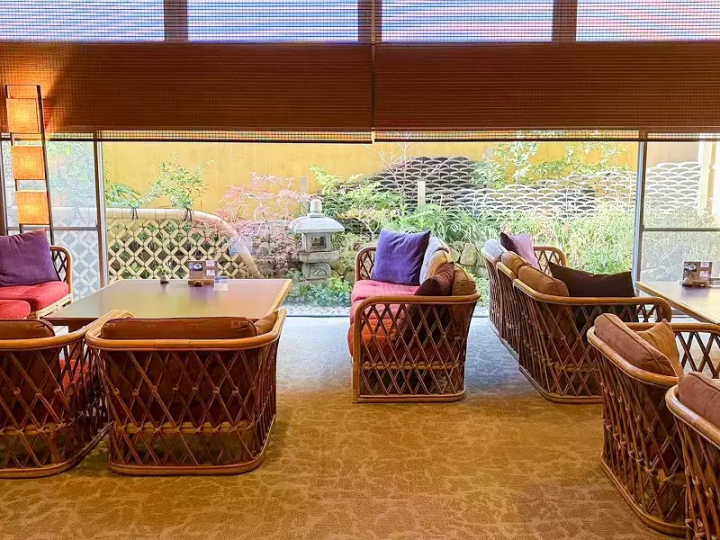Beppu Onsen Guide: Access, Top Hot Springs, Food, and More

Beppu Onsen boasts the largest number of hot springs in the world and the highest yield of hot spring water in Japan. These factors make it a famous hot spring resort. This guide introduces the scenic Hells of Beppu, recommended onsen facilities, and day trip itinerary, and more!
Beppu Onsen - Oita's Hot Spring Paradise
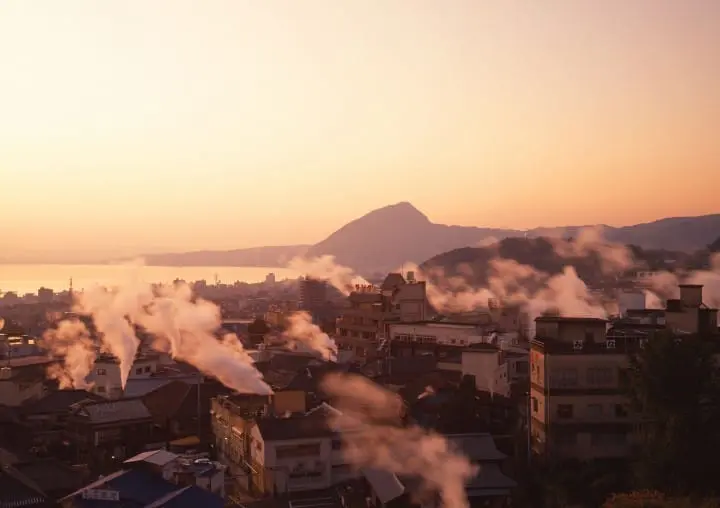
Picture courtesy of Tourism Oita
Beppu Onsen is the name of an area with a large concentration of hot springs in Beppu, Oita Prefecture. It is truly a representative hot spring area, boasting the greatest number of hot spring sources in the world and the highest yield of hot spring water in Japan.
You’ll find steam rising into the air everywhere in Beppu. Within the city, you’ll be able to enjoy typical hot spring facilities along with unusual hot springs like sand or mud baths. The area itself has a long history that has been described in texts dating from the beginning of the eighth century and is ranked as one of Japan’s three major hot spring areas.
Beppu Onsen Guide
1. Access to Beppu Onsen
2. Traveling in Kyushu
3. First Start Here! The Hells of Beppu Tour
4. Jigokumushi ("Hell Steamed") Cuisine
5. Jigokumushi Pudding
Five Recommended Hot Springs in Beppu
6. Takegawara Onsen (Beppu Onsen)
7. Suginoi Hotel (Kankaiji Onsen)
8. Sand Baths (Kamegawa Onsen)
9. Myoban Yunosato (Myoban Onsen)
10. Mud Baths (Myoban Onsen)
11. Recommended Stores in Beppu Onsen
Amusement Facilities in Beppu Onsen
12. Kijima Kogen Park
13. Aquarium Umitamago
4 Local Dishes to Try in Beppu
14. Toriten (Oita-Style Fried Chicken)
15. Reimen (Chilled Noodles)
16. Oita Bungo Beef
17. Fresh Seafood
18. A Recommended Two-Day Travel Itinerary in Beppu Onsen
Access to Beppu Onsen
From Hakata, Fukuoka
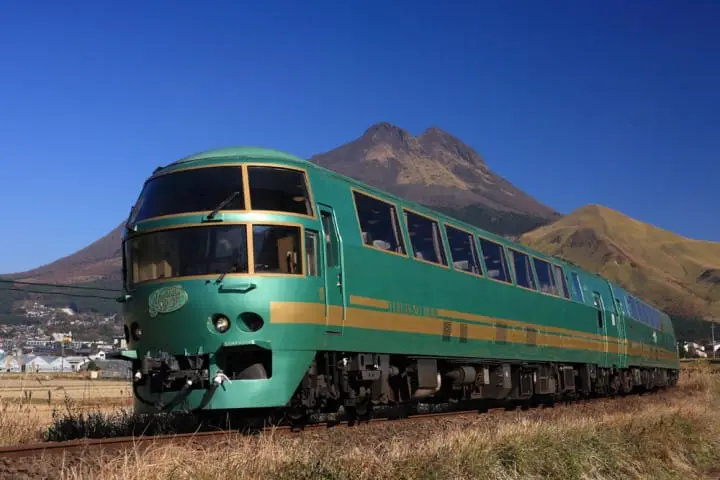
Limited Express Yufuin no Mori. Picture courtesy of JR Kyushu Railway Company. Picture from Yufuin Travel Guide – Best Destinations, Hot Springs, Art, And Food
It’s very easy to travel to Beppu from Fukuoka as it neighbors Oita to the west. Direct express buses depart from Fukuoka Airport (approx. two hours and fifteen minutes for 3,190 yen). Two Limited Express Sonic trains also depart every hour from Hakata Station in central Fukuoka (approx. two hours of travel time for 5,570 yen).
It’s also possible to comfortably access Beppu by riding the Limited Express Yufuin no Mori, a sightseeing train.
From Osaka
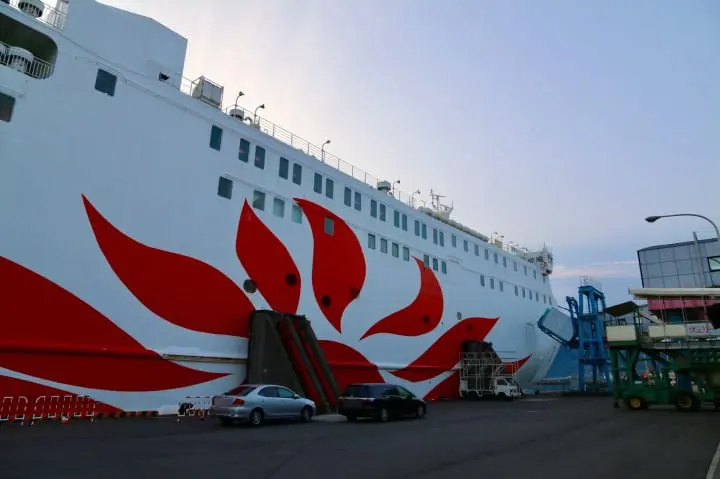
If you're coming from Osaka, you can travel to Beppu by plane, by shinkansen (bullet train), express bus, or by ferry. Direct flights are available from Itami Airport (Osaka International Airport) to Oita Airport (about one hour; fares will fluctuate according to the season and airline).
Taking the shinkansen will require a transfer. Take the Nozomi or Sakura Shinkansen from JR Shin-Osaka Station, then exit at Kokura Station. From there, take the Limited Express Sonic to Beppu Station (approx. four hours costing about 17,000 yen).
If you have extra time, we would recommend taking the ferry. On the Ferry Sunflower, you will depart from Osaka at night and arrive in Beppu the next morning. Fares will fluctuate depending on the season and start at around 11,200 yen for a one-way ticket. Discount plans are also available. They consist of two nights aboard the cruise and do not require lodging in Beppu. This plan can be purchased at an affordable price of 10,000 yen for a roundtrip ticket.
Oita Airport: https://www.oita-airport.jp/en/
Ferry Sunflower (Reservations): https://www.ferry-sunflower.co.jp/en/route/osaka-beppu/time/
Traveling in Kyushu
By Train
If you’ll be traveling around Kyushu to other prefectures such as Kumamoto, Nagasaki, and Kagoshima, then the JR Kyushu Rail Pass is available at a great value. The pass is split into three different areas: All, Northern, and Southern Kyushu. Beppu is included in the All and Northern Kyushu areas.
JR Kyushu Rail Pass: https://www.jrkyushu.co.jp/english/railpass/railpass.html
If you plan to visit various hot spring areas in Beppu and thoroughly travel around the Oita and Kyushu area, then it would be useful to rent a car.
By Bus

Picture from Close To Fukuoka And Oita! Getting To Hita City, Kyushu's Travel Hub
The highway bus and bus network in Kyushu is highly developed and you may find it easier to get from a place to another by bus than by train.
SUNQ Pass is a convenient multiple day unlimited ride bus ticket usable on both highway and local buses within Kyushu.
The SUNQ Pass is available in four variants: Northern Kyushu (3 days; 9,000 yen), Southern Kyushu (3 days; 8,000 yen), All of Kyushu (3 days; 11,000 yen), All of Kyushu (4 days; 14,000 yen).
It can be purchased at all the major airports and bus terminals in Kyushu.
SUNQ Pass Details: http://www.sunqpass.jp/english/konyu/
First Start Here! The Hells of Beppu Tour
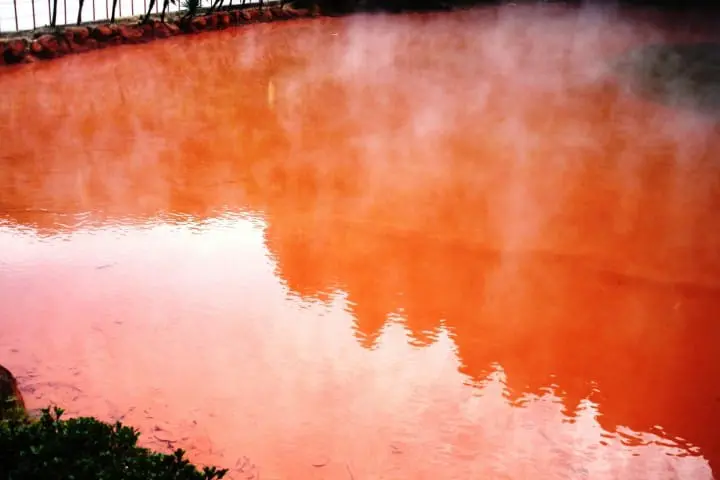
Chinoike Jigoku ("Blood Pond Hell"). The iron oxide found in thermal mud turns red once it comes in contact with oxygen. Picture courtesy of Tourism Oita
The Hells of Beppu is a tour around eight “hells” found in Beppu’s representative sightseeing area. These ponds are dyed in either deep red hues or cobalt blues as if they were something out of this world.
The term “Hells of Beppu” refers to hot spring spouts that gush out 100 degrees Celsius fumarolic gas and thermal mud. Steam with this extremely high temperature gushes out with the water, which changes to various colors due to the components in the springs. Their frightful sight resulted in these hot springs being called “hells.”
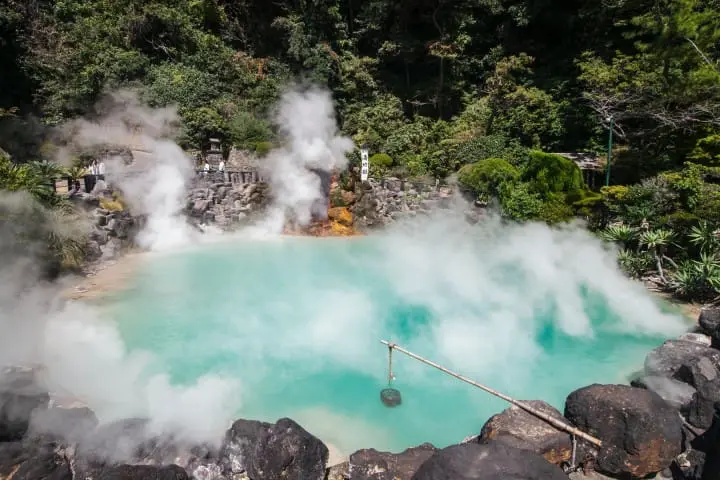
Umijigoku ("Sea Hell"). Picture courtesy of Tourism Oita
The hells are found in the Kannawa area. Five different hells, including the Umijigoku ("Sea Hell"), which is dyed in blue, and Oniishi Bozu Jigoku ("Monk's Hell"), a spring that gushes thermal mud with bubbling noises, are found in Kannawa. About five to ten minutes away by car, you’ll also find Chinoike Jigoku ("Blood Pond Hell") and Tatsumaki Jigoku ("Geyser Hell"), which shoots thermal mud at 150 degrees Celsius into the air.
There are a total of eight hells and a joint admission ticket will cost 2,000 yen. Depending on the area, there will also be footbath facilities that can be used for free.
Hell Tour buses are available if you want to efficiently travel around the hells. The buses depart every day from Beppu Station at 9:20 and 14:00 for a total ride time of approximately three hours. It will cost 3,650 yen (includes an admission ticket for seven hells). You must make your reservation beforehand through their reservation website.
Jigokumushi ("Hell Steamed") Cuisine
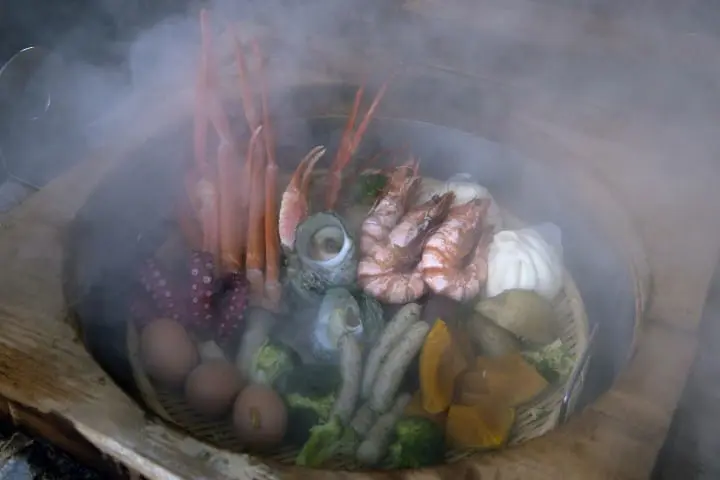
Picture courtesy of Tourism Oita
Jigokumushi (literally “hell steamed”) is a cooking style specific to the area around the Hells of Beppu. This cuisine is made with ingredients that are steamed all at once with the high temperature steam harnessed from the hot springs.
The broth's excess oil and surface scum is simply removed by the steam's 100 degrees temperature, which simultaneously deepens the flavor. This cuisine can be eaten at the Hell Steaming Workshop Kannawa, a popular center that also allows you to bring your own ingredients, and Chinetsu Kanko Labo Enma, where you can enjoy a footbath while eating jigokumushi.
Jigokumushi Pudding

Picture courtesy of Tourism Oita
Jigokumushi (Hell-Steamed) Pudding is a dessert you’ll want to eat with your jigokumushi. Similar to the style of jigokumushi, this pudding is made with the steam from the hot springs. It can be eaten at Okamotoya in the Myoban Onsen area.
Five Recommended Hot Springs in Beppu
Once you have visited the "hells," how about relaxing in Beppu's amazing hot springs? Here are five recommended facilities.
1. Takegawara Onsen (Beppu Onsen)

Picture courtesy of Tourism Oita
Takegawara Onsen holds a symbolic status in Beppu Onsen. It was first established in 1879 and was reconstructed to its present structure in 1938. Its dignified wooden architecture will take you back in time. At this facility, not only can you experience a typical hot spring, but you can also try sand baths (mentioned below) as well.
Takegawara Onsen is a communal bath, so anyone can bathe here. Entry fees cost a mere 100 yen (sand baths: 1,030 yen) and the hot spring is a ten-minute walk from JR Beppu Station. Its accessibility is also one of its appeals.
2. Suginoi Hotel (Kankaiji Onsen)

Suginoi Hotel’s open-air bath. You can see the morning sun as pictured above simply by staying at the hotel. Picture courtesy of Tourism Oita
Suginoi Hotel is where you can soak in a hot spring while gazing at a marvelous view. The Tanayu, an open-air bath, is a hot spring with a superb, panoramic view of Beppu Bay.
The Aqua Garden, located inside the hotel, has all kinds of hot spring amusement facilities. These include a fountain show and the Float Healing Bath, where you can float in a hot spring that contains a high concentration of salt. These facilities can be enjoyed by families and couples.
3. Sand Baths (Kamegawa Onsen)
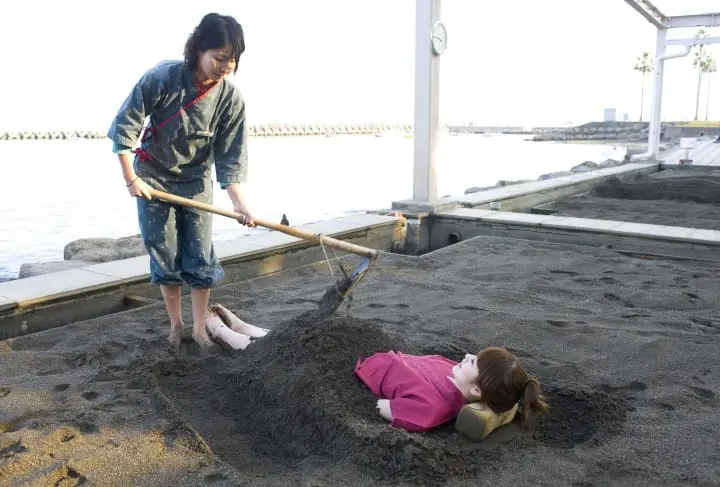
Picture courtesy of Tourism Oita
When visiting Beppu, the sand baths are something you should try at least once!
Sand baths are a type of bath that involves getting one's body covered with sand warmed by the heat of the hot springs. Both your blood flow and metabolism will improve because your entire body warms up. In just fifteen minutes submerged in the sand, you'll start sweating. Sand baths can be found at Beppu Kaihin Sunayu.
4. Myoban Yunosato (Myoban Onsen)
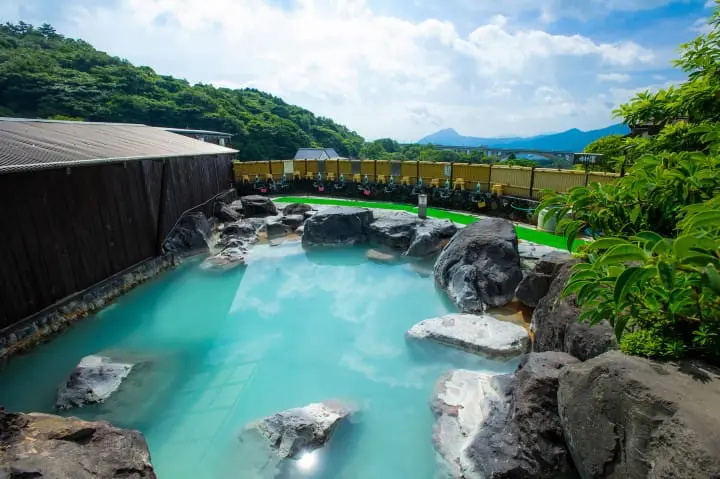
Myoban Yunosato’s large outdoor stone-lined bath. Picture courtesy of Tourism Oita
Myoban Onsen is an area that has manufactured alum since the Edo period. Mineral deposits, which are natural bath salts, are made through the alum manufacturing process. Myoban Yunosato is a manufacturing facility and direct-sales store of these mineral bath salts. You can also tour the thatched manufacturing huts that make the bath salts as well as actually enter the hot springs here.
There is also a restaurant where you can taste the local Oita cuisine and a shop where you can purchase original cosmetics that contain mineral bath salts. Enjoy your time here at leisure.
5. Mud Baths (Myoban Onsen)
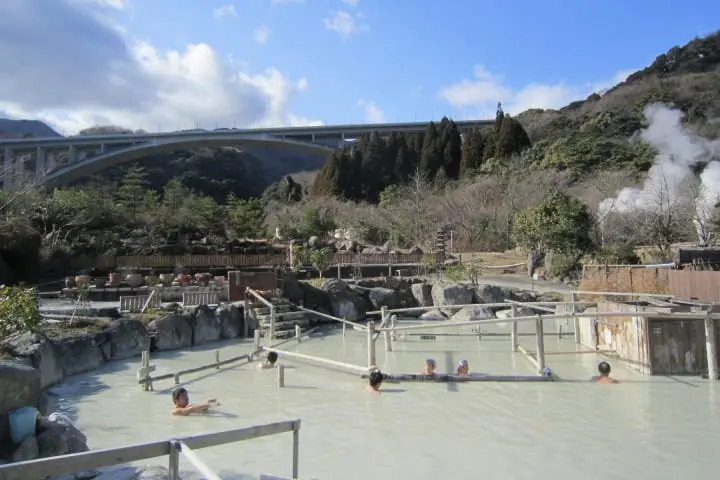
Picture courtesy of Tourism Oita
Beppu Onsen Hoyo Land is a facility where you can enter mud baths, a type of bath that is rare even in Japan. The mud was first created when the right amount of fumarolic gas from the hot springs, corrosive layers of clay, and underground water containing minerals were combined together. The mud is said to be effective for various ailments including rheumatism and skin diseases.
The facility has several indoor hot springs as well as a mixed open-air bath. There are separation barriers in the mixed bath and you can soak comfortably as the hot water will be cloudy with mud. If you still feel reluctant, however, then feel free to use the indoor mud baths instead.
Recommended Stores in Beppu Onsen
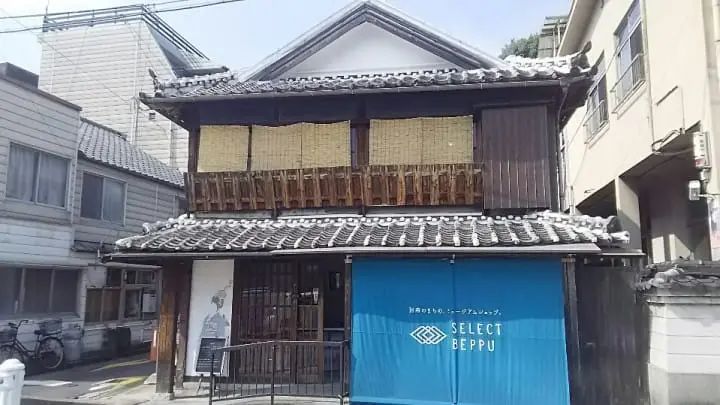
SELECT BEPPU, located in a renovated Japanese home. Picture courtesy of SELECT BEPPU
In Beppu, there are many general stores with a unique atmosphere. Visiting each store is one way to fully enjoy the area.
SPICA, a boutique located about ten minutes away on foot from Beppu Station. You can find here a special selection of various items—including bags, daily necessities, and more—from Oita and Kyushu.
Although slightly further from the city center, poche is a store with a tasteful selection of accessories, small items, and other general goods.
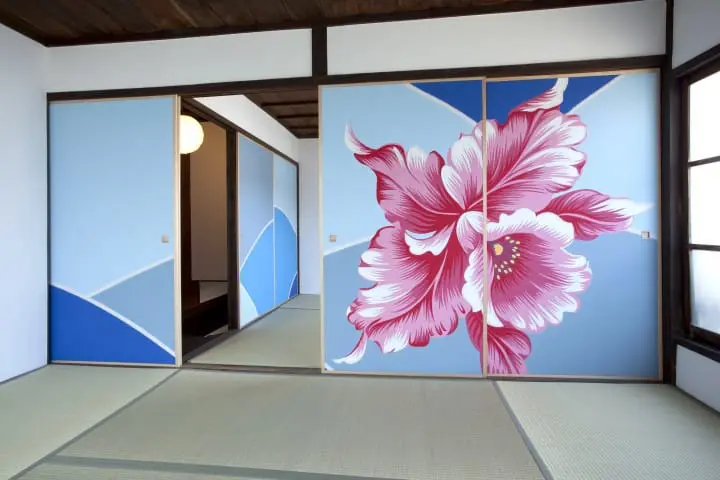
Picture courtesy of SELECT BEPPU
In recent years, Beppu has also become known for its vibrant art scene. At SELECT BEPPU, you will find original products made in collaboration with Beppu artists and artisans being sold. The facility itself is a renovated Japanese home with a shop situated on the first floor. On the second floor, you can admire paintings drawn on sliding screens, which were originally displayed at a Beppu art festival.
Amusement Facilities in Beppu Onsen
Kijima Kogen Park
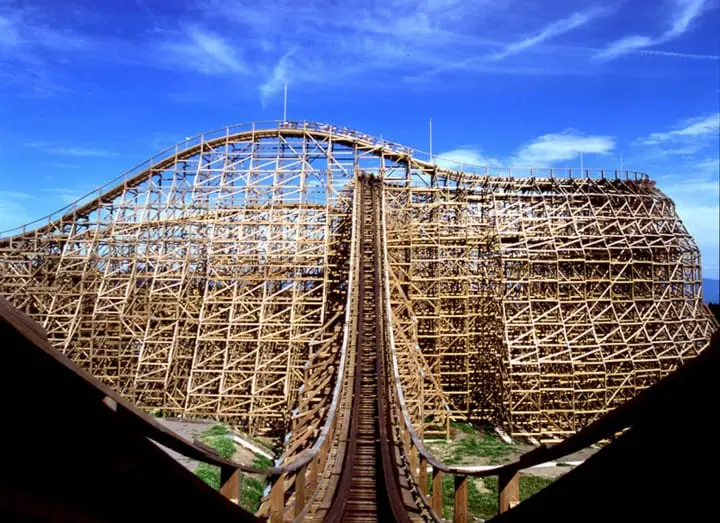
Picture courtesy of Tourism Oita
If you have extra time, then Kijima Kogen Park is somewhere you’ll want to visit. The park is most famous for its wooden roller coaster! This scream-machine was built using 60,000 trees and is something you’ll definitely want to ride at least once.
Aquarium Umitamago
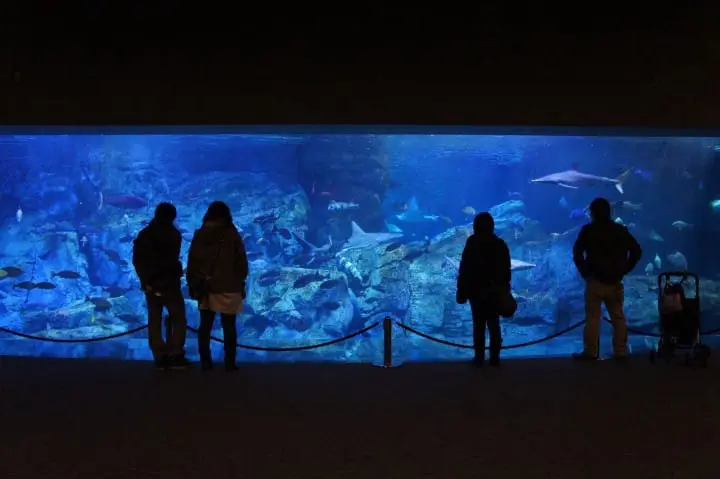
Picture courtesy of Tourism Oita
Umitamago (Oita Marine Palace Aquarium) is an aquarium where visitors can marvel at marine life and even interact with some of the creatures.
This aquarium can be enjoyed by all ages. Inside, you’ll find the Touch Area where you can directly interact with starfishes and sea cucumbers. There is also an art corner with illuminated water tanks that magically light up living organisms.
4 Local Dishes to Try in Beppu
1. Toriten (Oita-Style Fried Chicken)
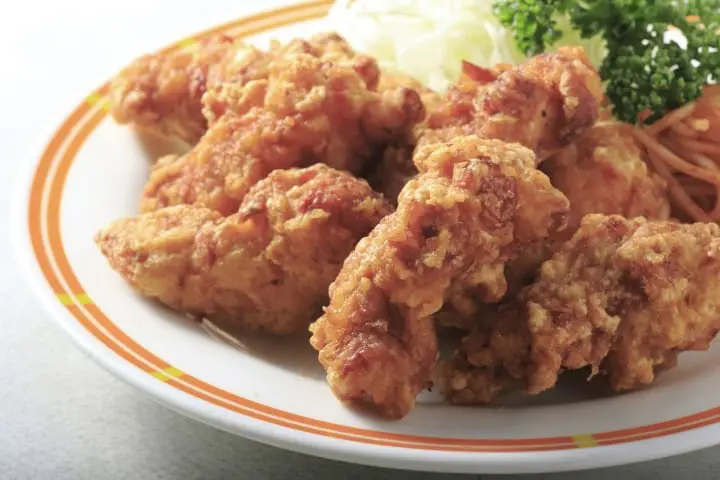
Picture courtesy of Tourism Oita
Toriten is similar to karaage (fried chicken) yet different in that it the outer layer of the chicken meat is made of flour and not starch.
The dish is eaten by squeezing kabosu (a type of citrus fruit)—a local Oita specialty—onto chicken tempura and flavoring it with either soy or ponzu sauce. Despite being a fried dish, it's easy on the stomach and locals would agree that it's immensely loved.
2. Reimen (Chilled Noodles)
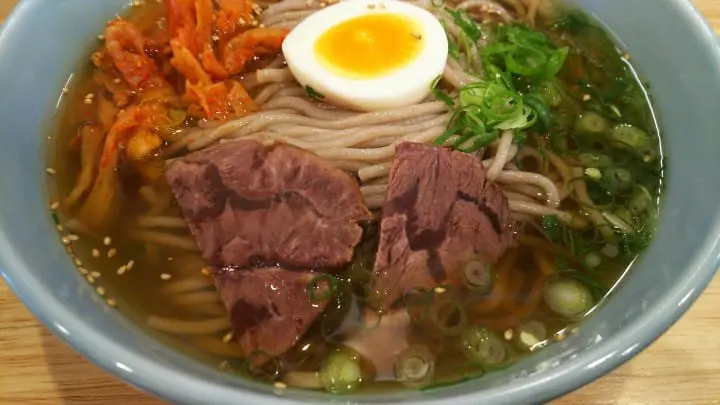
When it comes to reimen (cold noodles) in Japan, the Morioka reimen in Tohoku's Iwate Prefecture are the most famous. However, Beppu has its own unique version of cold noodles. The dish is said to have been popularized when immigrants from the Korean peninsula brought their home country’s cold noodles to Beppu following the end of World War II.
The flavors of the dish have been adjusted to suit the Japanese palate. A reimen dish is typically made with a Japanese-style soup flavored with dashi stock and topped with beef char siu. It might also be fun to taste and compare variations of the dish as they will vary in flavor and style depending on the shop.
3. Oita Bungo Beef
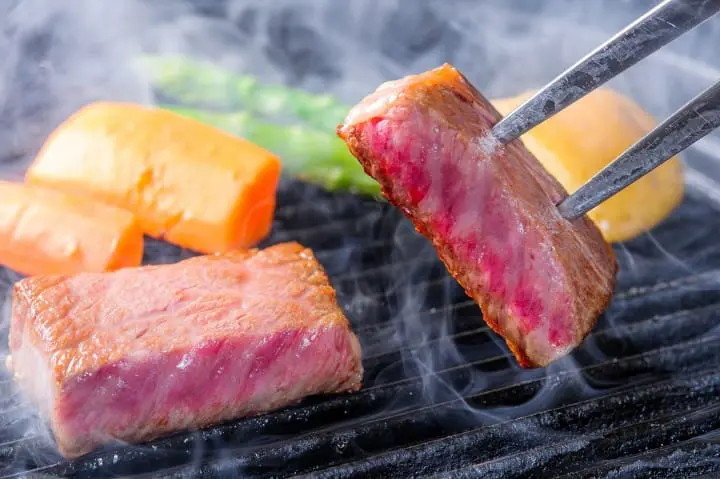
Picture courtesy of Tourism Oita
Beef raised in the nature-abundant Oita is tender and has a melt-in-your-mouth flavor. Among the local beef is a brand called Oita Bungo Beef that can only be certified under this name after it has cleared especially strict conditions.
Oita Bungo Beef can be eaten grilled at Ichiriki or as steak at Somuri.
4. Fresh Seafood
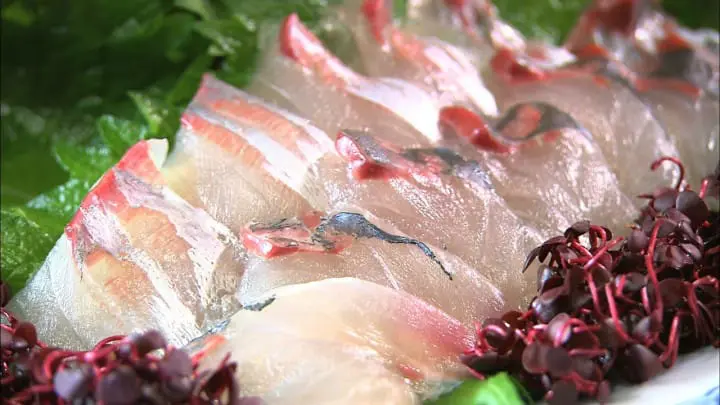
Picture courtesy of Tourism Oita
In Oita, a prefecture near the sea, visitors can enjoy many kinds of fresh fish. The area is famous for its filling sekisaba (a variety of chub mackerel), fatty sekiaji (horse mackerel), meaty and flavorful shiroshita karei (a type of flounder), and chewy kuruma ebi (prawns). Please give them a try at an izakaya (Japanese pub).
A Recommended Two-Day Travel Itinerary in Beppu Onsen
Lastly, we’ll introduce a two-day travel plan that includes the places we’ve introduced in this article.
Day One
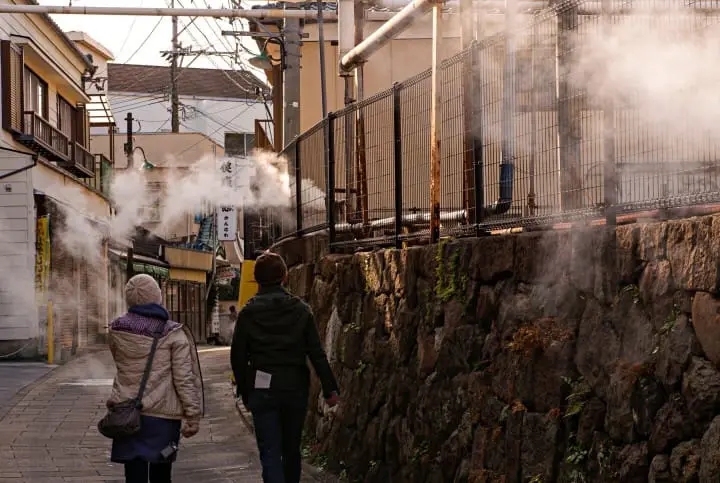
Steam billowing out into the air downtown in the Kannawa area. Picture courtesy of Tourism Oita
In the morning, let’s head to the famous spots along the Hells of Beppu Tour! Lunch should naturally be the local specialty jigokumushi. It would also be a great idea to rest at Yohachiro Café & Sweets, a café in the Kannawa area, while savoring a cake.
In the afternoon, experience the sand baths at Beppu Kaihin Sunayu and the mud baths at Beppu Onsen Hoyo Land. It would be amazing if you’re able to stay at Suginoi Hotel, the hot spring hotel boasting a superb view.
Day Two

Takegawara Onsen at night. Picture courtesy of Tourism Oita
In the morning, it would be great to take your time visiting the general stores in Beppu. Those who want to spend some leisure time should visit Aquarium Umitamago or Kijima Kogen Park.
For lunch, treat yourself to an Oita specialty at the very restaurant that invented toriten, Toyoken. Don’t forget to also stop by Takegawara Onsen near Beppu Station!
Enjoy Your Visit to Beppu Onsen!
Beppu is an area where you can naturally enjoy hot springs along with local cafes, scenic views, shopping, and fun activities. Enjoy your Beppu travels to the fullest while savoring the exceptional local cuisine!
Read also
Main image courtesy of Tourism OitaOriginal Author: Mirukurin
This article is a rewritten version of an article originally published on May 18, 2017.
This is the official account of MATCHA's editorial department. Our articles feature useful travel information for visitors to Japan, from how-to guides to recommended places to visit.



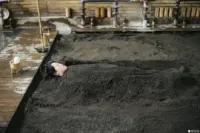
























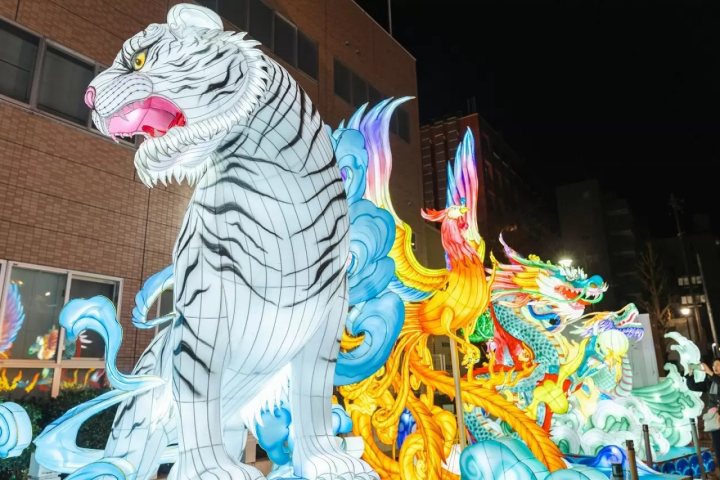
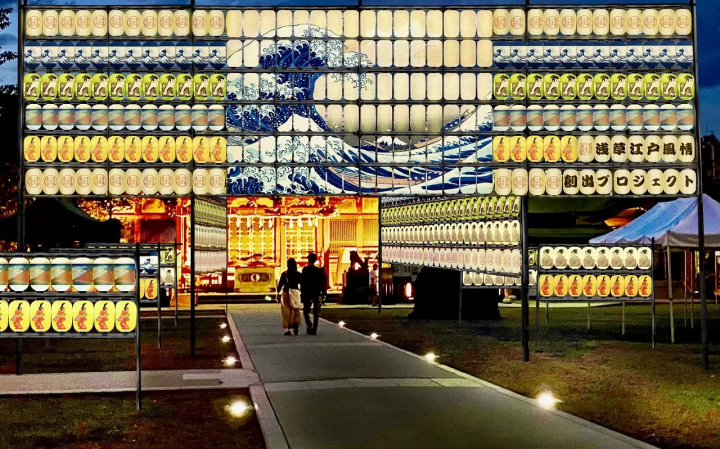


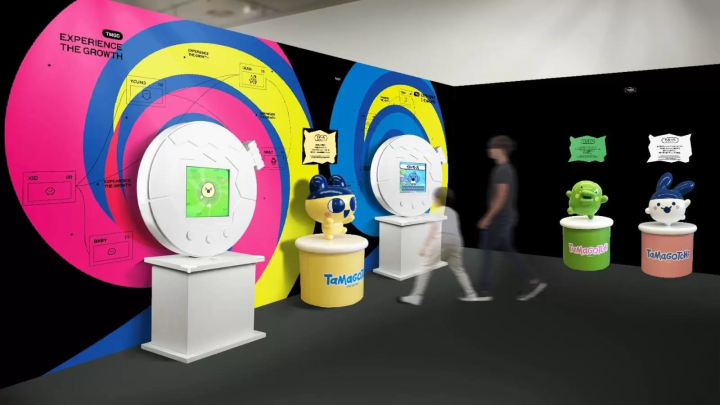
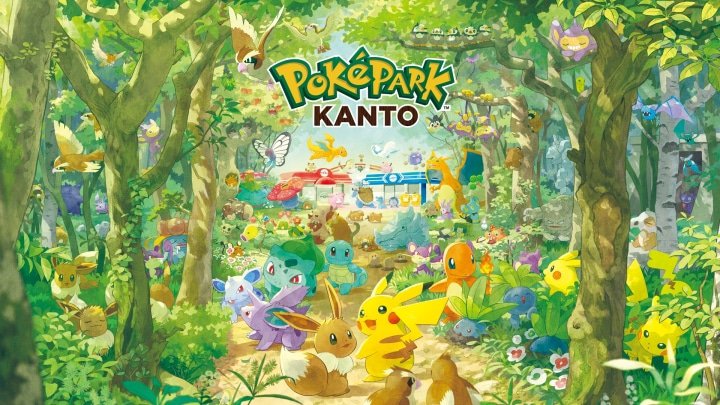




![[Yufuin] A 30-Minute Drive into Old-World Japan. A 3-Day Onsen Retreat.](https://resources.matcha-jp.com/resize/720x2000/2026/02/01-257316.webp)

![[2026 Update] A Complete Guide to Enjoying the Hidden Gem of Japan Travel: Tokyo and Kozushima in 4 Tomari and 5 Days](https://resources.matcha-jp.com/resize/720x2000/2024/09/28-199498.webp)
![[Tokyo/Osaka] A must-see for Hong Kongers! Enjoy sushi and crab at FUJIYAMA, a place that offers great value and freshness](https://resources.matcha-jp.com/resize/720x2000/2026/01/31-257155.webp)
